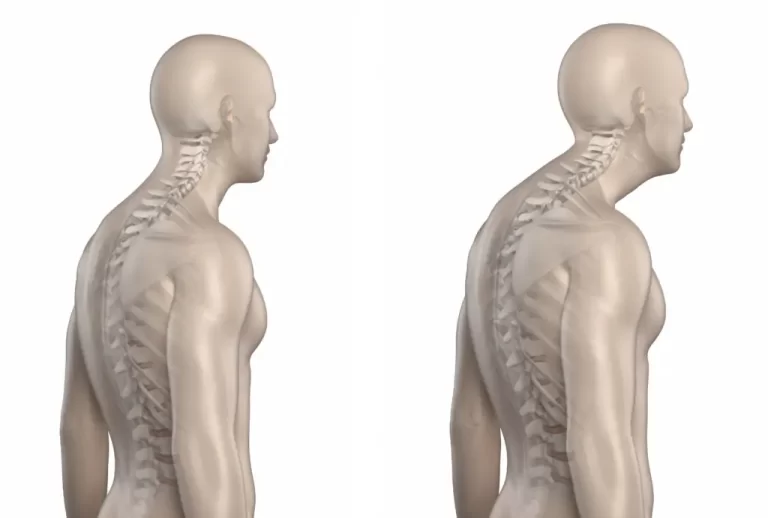Are you suffering from a hunch or curved back? You might be dealing with kyphosis, which is a spinal disorder that affects the natural curve of the spine. Spinal injuries, degenerative diseases, or poor posture can cause this spinal disorder. Which is why understanding the early signs of kyphosis can be helpful for effective management. Here, we will provide everything you need to know about kyphosis, its symptoms, causes, treatment, and more. Dr. Burks is a renowned neurosurgeon who has expertise in treating numerous spinal disorders, including kyphosis.
What is Kyphosis?
Kyphosis is a spinal condition that can be identified by excessive curving or rounding of the upper back and can be seen as a roundback or hunchback posture. However, mild kyphosis may not require treatment, but in the case of severe kyphosis, consistent pain, breathing difficulties, and other complications can be caused.
Types of Kyphosis
Here are some common types of kyphosis, which include
- Postural kyphosis
- Scheuermann’s kyphosis
- Congenital kyphosis
- Cervical kyphosis
- Hyperkyphosis
What are the Common Signs/Symptoms of Kyphosis?
Here are some common signs of mild to severe kyphosis, which include the following:
1. Visible Changes in Posture:
- Rounded or Hunched Back
- Forward Head Posture
- Rounded Shoulders
- Difference in Shoulder Height and Position
- Hump on the Back
2. Back Pain and Stiffness:
3. Physical Limitations and Fatigue:
- Tight Hamstrings
- Fatigue
- Limited Physical Functions
- Reduced Flexibility
4. Symptoms in Severe Cases:
- Breathing Difficulties
- Numbness or Weakness in Legs
- Digestive Problems
- Body Image Issues
- Loss of Height
Causes and Risk Factors of Kyphosis
Here are some common causes and risk factors of kyphosis, including
Common Causes
- Poor Posture
- Congenital and Developmental Issues
- Age-Related Changes (Osteoporosis, Degenerative disc disease, Muscle weakness)
- Other Medical Conditions (Spinal tumors, Spinal infections, Neuromuscular disorders, Spondylolisthesis, Hormonal disorders, Connective tissue disorders)
Risk Factors
- Age
- Family History
- Osteoporosis
- Postural Kyphosis
- Ankylosing Spondylitis
- Spinal Injuries
- Tumors and Infections
- Spondylolisthesis
Diagnosis Process of Kyphosis
The diagnosis process of kyphosis typically includes
1. Physical Examination: Specialists perform some physical examinations to examine the spine, muscle strength, and range of motion, and observe posture.
2. Medical History: A doctor will review your medical history, including any family history of spine problems, and inquire about any previous injuries or illnesses.
3. Imaging Tests:
4. Neurological Tests: They include sensory and reflex tests that are performed to assess symptoms of nerve compression, such as numbness or tingling.
What are the Available Treatment Options for Kyphosis
Depending on factors such as its cause, severity, and symptoms, treatment for kyphosis varies, including non-surgical and surgical treatments.
Non-Surgical Treatments:
- Physical Therapy
- Bracing
- Pain Management
- Posture Training
- Lifestyle Modifications
Surgical Treatments:
- Spinal Fusion
- Vertebral Column Resection
- Osteotomy
- Kyphoplasty
Based on the individual condition and severity, specialist neurosurgeons such as Dr. Burks determine a specific treatment plan.
Recovery & Post-Treatment Care
The kyphosis recovery process may vary depending on the treatment method. With non-surgical treatment plans, patients might see significant improvement over time with physical therapy.
After surgical treatment:
Hospital Stay: Most patients typically stay in the hospital for at least 3 to 5 days.
Initial Recovery: An individual may resume light activities within 4 to 6 weeks.
Rehabilitation: After surgery, physical therapy is important for regaining strength and maintaining alignment.
Long-Term Care: Regular follow-up appointments are crucial to monitor the progress and prevent recurrence.
Average Cost of Kyphosis Treatment
The cost of non-surgical treatment for kyphosis varies based on the treatment methods, including bracing, physical therapy, and other therapies, but the average cost typically ranges from $140,000 to $200,000 or more, depending on the complications.
For kyphosis surgical treatments, the average cost ranges from around $140,000 to $200,000, depending on several factors such as the severity of the condition, the type of surgery performed, and complications.
Why Choose Dr. Shelby Burks for Kyphosis Treatment
Dr. Burks is a highly skilled and experienced neurosurgeon who specializes in treating a variety of spinal conditions, including kyphosis. With his team of medical experts, he has performed numerous spinal treatment procedures with optimal results and personalized post-operative medical care. Here are some key reasons to choose Dr. Shelby Burks for kyphosis treatment:
Experience & Expertise: With years of experience in treating spinal disorders, including kyphosis, scoliosis, etc.
Advanced Techniques: With cutting-edge techniques, he utilizes modern technology for imaging and minimally invasive procedures.
Patient-Centered Care: Provides personalized treatment plans & medical care to each patient according to their unique needs.
Excellent Outcomes: Provides treatment plans with high success rates and quality medical care.
Book a Consultation Today!
If you want to learn more about kyphosis and its treatment options, schedule a consultation with Dr. Shelby Burks through the given contact details:
Phone Number: 305-243-6946, 305-243-3337
Address: 1120 NW 14th Street / Miami, FL 33136
Frequently Asked Questions About Kyphosis: Symptoms, Causes & Treatment
Question 1. What are the major causes of Kyphosis?
Answer. Some major causes of kyphosis include poor posture in childhood, such as slouching, leaning back in chairs, and carrying heavy schoolbags, resulting in kyphosis due to the stretching of the ligaments and muscles that support the vertebrae.
Question 2. What non-surgical treatments are available for kyphosis?
Answer. Non-surgical treatment options for kyphosis include physical therapy, bracing, pain management, and posture correction techniques. The specific treatment plan is provided to the patient depending on the type of kyphosis, its severity, and the overall health of the patient.
Question 3. Can poor posture alone cause kyphosis?
Answer. Yes, poor posture can cause postural kyphosis, which is a common form of kyphosis and can be caused by poor spinal habits and slouching, particularly in office workers and adolescents.
Question 4. What are the common signs of kyphosis?
Answer. Some common signs of kyphosis include a hunched back, a stooped appearance, and a forward head posture. Other potential symptoms include back pain, stiffness, tightness in the hamstrings, and breathing difficulties.


